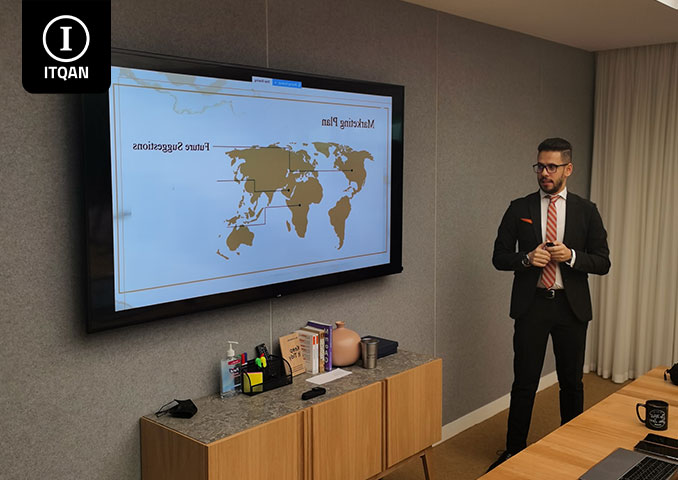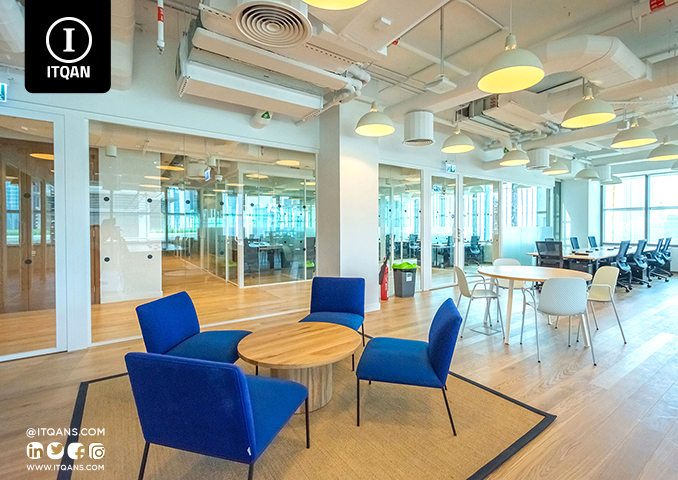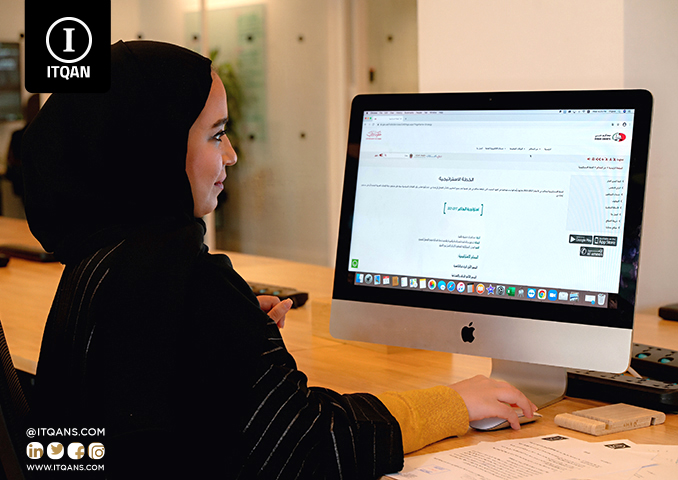Free zones in the United Arab Emirates are one of the most important factors that contributed to transforming the country into a global center for business, trade and investment. These areas are characterized by providing a unique business environment that meets the needs of investors and companies from all over the world by providing legal and financial incentives and guarantees that make them an attractive destination for foreign and local investments. These zones were established with the aim of promoting economic diversification and innovation and supporting the growth of companies in various economic sectors including technology, trade, financial services, manufacturing and logistics.
Itqan Company is one of the leading companies that plays a vital role in supporting and developing free zones in the Emirates. The company seeks to provide integrated solutions for companies and investors wishing to benefit from the opportunities available in these regions. Itqan works to facilitate the procedures for establishing companies and managing businesses by providing specialized consultations and comprehensive administrative services. The company also provides technical and technical support that helps companies achieve their goals effectively and efficiently.
The UAE free zones are an example of how to transform economic challenges into growth opportunities through innovation and strategic planning. These areas contribute to creating a stimulating business environment that attracts international companies and supports sustainable economic expansion. Free zones offer a wide range of incentives such as tax exemptions, full ownership by foreigners, and developed infrastructure. In addition, these areas provide a flexible regulatory environment that facilitates business operations and ensures the protection of investors’ rights.

Free zones in the Emirates
جدول المحتوى
ToggleTypes of companies that can be established in the UAE
The United Arab Emirates is considered a major investment and business destination in the Middle East region, as it provides an attractive regulatory and financial environment for investors from all over the world. The legal system in the UAE is characterized by flexibility and diversity, allowing the establishment of several types of companies to meet the needs of different economic sectors. These types of companies vary in their legal and administrative requirements, providing multiple options for investors wishing to start or expand their business in the UAE. Types of companies that can be established in the UAE
1. Limited Liability Companies (LLC)
- Description: Limited liability companies are one of the most common types of companies in the UAE. It is characterized by being a separate legal entity from its owners, which means that the partners’ liability is limited to the amount of their shares in the company.
- Requirements: You usually need a local partner with 51% equity, but some businesses may allow full foreign ownership.
2. Public Joint Stock Companies (PJSC)
- Description: Public joint-stock companies are established for major commercial purposes and their shares are tradable on the stock exchange. These companies require greater capital and a larger number of shareholders.
- Requirements: Paid-up capital must be large, and is subject to regulation and supervision by relevant authorities such as the Securities and Commodities Authority.
3. Private Joint Stock Companies (PrJSC)
- Description: Private joint stock companies are similar to public joint stock companies, but differ in that their shares are not offered for public trading. They are often used for family businesses or large private enterprises.
- Requirements: Need less capital than publicly traded companies and fewer shareholders.
4. Individual companies
- Description: These companies are founded by a single individual who owns and operates the entire company. This type of company is suitable for small and medium businesses.
- Requirements: There is no need for a local partner if the owner is an Emirati or GCC citizen. For foreigners, a local sponsor is required.
5. Foreign branches
- Description: The UAE allows foreign companies to open branches without the need to establish a new legal entity. Foreign branches can carry out the same business activities as the parent company.
- Requirements: The necessary approvals must be obtained from the competent authorities and the branch must be registered with the official authorities.
6. Free enterprises
Description: These companies are established within free zones and enjoy several advantages such as tax exemptions and full foreign ownership. These companies vary between limited liability free zone companies and individual free zone companies.

Basic steps to establish a company in the UAE
Basic steps to establish a company in the UAE
The United Arab Emirates is one of the most prominent global destinations for investment and establishing companies thanks to its stable economic environment and business-friendly policies. The UAE has advanced infrastructure, a flexible legal framework, and free zones that offer attractive incentives to investors. Establishing a company in the UAE can be a smooth and straightforward process if the right steps are followed. This guide aims to clarify the basic steps that must be followed to establish a company in the UAE to ensure the success of the process and compliance with local laws. Basic steps for establishing a company in the UAE
1. Choose the type of business activity
- Determine the activity: The first step is to determine the type of business activity you want to engage in. You must ensure that the activity is permitted in accordance with local laws and regulations.
- Classification: Commercial activities in the Emirates are classified into several categories such as commercial, industrial, professional, and tourist activities.
2. Choosing the legal form of the company
- Legal form: You must choose the appropriate legal form for the company, such as a limited liability company (LLC), a public joint stock company (PJSC), a branch of a foreign company, or a free zone company.
- Requirements: Legal and financial requirements vary based on the chosen legal form.
3. Reserve a trade name
- Trade Name: Reserve a unique trade name that is consistent with the business activity and complies with local regulations.
- Approval: The approval of the competent authorities must be obtained for the chosen trade name.
4. Preparing the articles of association and articles of association
- Articles of Association: includes detailed information about the partners, capital, and distribution of shares.
- Articles of Association: Determines the company’s internal regulations and how it is managed.
5. Submit a commercial license application
- Commercial License: Submit an application to obtain the appropriate commercial license for the chosen business activity.
- Documents: The application includes submitting the required documents such as copies of passports, lease, and articles of incorporation.
6. Registration in the Chamber of Commerce
- Membership: Register the company with the local Chamber of Commerce to obtain membership that enables it to conduct business.
Learn about the free zones in the Emirates
In conclusion of the talk about free zones in the Emirates and their pivotal role in promoting economic growth and providing an ideal environment for investment, cooperation with Itqan Company stands out as an essential factor in achieving these successes. Thanks to its ambitious vision and smart economic policies, the UAE was able to create free zones that meet the aspirations of companies and investors from around the world, making it a global center for business and trade.
Itqan Company plays an effective role in facilitating and facilitating commercial operations within the free zones by providing comprehensive services that include legal, administrative and technical consultations. The company always seeks to provide a suitable and supportive work environment for investors, which helps them achieve their goals and grow their business efficiently. Itqan’s role is to provide innovative solutions and facilitate bureaucratic procedures, which enhances the ability of companies to take advantage of the opportunities available in the free zones.
The UAE’s experience in developing free zones reflects great success in creating a competitive and supportive business environment for innovation. The UAE has been able to attract a large number of international companies thanks to the stimulating policies and various economic incentives it offers. These incentives include tax exemptions, full foreign ownership, advanced infrastructure, as well as a flexible regulatory environment that facilitates business operations and protects investors’ rights.
Cooperation between Itqan and government agencies contributes to strengthening the UAE’s position as a preferred destination for investment and business. This cooperation helps achieve a balance between achieving the economic interests of investors and supporting the sustainable economic growth of the country. Free zones in the UAE continue to play a vital role in achieving the UAE’s economic vision, by attracting more investments and promoting economic diversification.
Frequently asked questions about free zones in the UAE
What types of companies can be established in the UAE?
In the UAE, several types of companies can be established including: Limited Liability Companies (LLC) Public Joint Stock Companies (PJSC) Private Joint Stock Companies (PrJSC) Sole Proprietorships Foreign Branches Free Zones and Tax Exempt Companies
What are the basic steps to establish a company in the UAE?
The basic steps for establishing a company in the Emirates include the following: Choosing the type of business activity Choosing the legal form of the company Reserve a trade name Preparing the articles of association and articles of association Submitting a commercial license application Registering with the Chamber of Commerce
What are the free zones in the UAE and how do they differ from regular zones?
Free zones are special economic zones that provide economic and business incentives that include: Full tax exemptions 100% foreign ownership No restrictions on repatriation of capital and profits Faster and easier establishment and registration procedures These zones differ from regular zones that may impose some tax and administrative restrictions.
What are the documents required to establish a company in the UAE?
Required documents include: Copies of passports for shareholders and directors A copy of the Emirates ID card (for residents) Lease contract for the commercial headquarters Memorandum and articles of association Approvals from the relevant authorities (if necessary)
Can foreigners establish a company in the UAE?
Yes, foreigners can establish companies in the UAE, especially in free zones that allow 100% foreign ownership. In normal areas, a local partner may be required to own 51% of the company, but this requirement can be exceeded in some cases depending on the business and location.
How long does it take to establish a company in the UAE?
The time it takes to incorporate a company varies based on the type of company and location, but usually ranges from several days to several weeks. In free zones, the time taken can be shorter due to simplified procedures.

















